Due for release at the upcoming Shanghai motor show, Auto Shanghai, the newest offering from Great Wall is set to take on the bigger players in the dual-cab ute segment. The new ute pictured here, is the ‘off-road’ version of the ute, which is the diesel variant, however we can expect the new Great Wall ute to be fully electric as an option.
The new diesel version of the ute is set to have a tweaked up version of the known 2.0L turbo-diesel, and have outputs of above 140kW / 440Nm. The expectation is a 3000kg braked towing capacity, however it is the off-road additions and abilities that are raising eyebrows.
There will of course be the standard ute up for grabs, however the ‘off-road’ version is offering a 900mm wading depth, lift and off-road biased tyres as standard, as well as a winch and snorkel fitted from factory. The new Great Wall will have three-way locking differentials, and a selectable seven-setting off-road mode system.
Further adding to the Utes off-road credentials, is just how tough it looks (for a Great Wall). With an aggressive front end, tub and sports bars, it’s easy to see how this will rival some of the bigger manufacturers. Especially considering the rather ugly early Great Walls that we saw on our shores.
For the electric model, Great Wall Motors have already confirmed a range upwards of 500km, however there have not been many details released on this model at this stage, except that the Australian arm of Great Wall have already put their hand up to have them delivered Down Under – so watch this space.
Now that we have confirmed Great Wall ute to be fully electric in to the future, will the 500km range be enough for the Australian Market? Many punters have said until range hits closer to 1000km, electric vehicles just wont be viable in Australia, especially considering the vast country we live in, and the distances travelled once you’re out of the cities. With continual improvements in battery and capacitor technology, there’s a good chance they will hit that mark before too long; especially due to the research and development costs making a shift from fossil fuels to electric.
There will be more to come across this range, when we get official details from Auto Shanghai, which kicks off in just over a weeks time, so stay tuned!



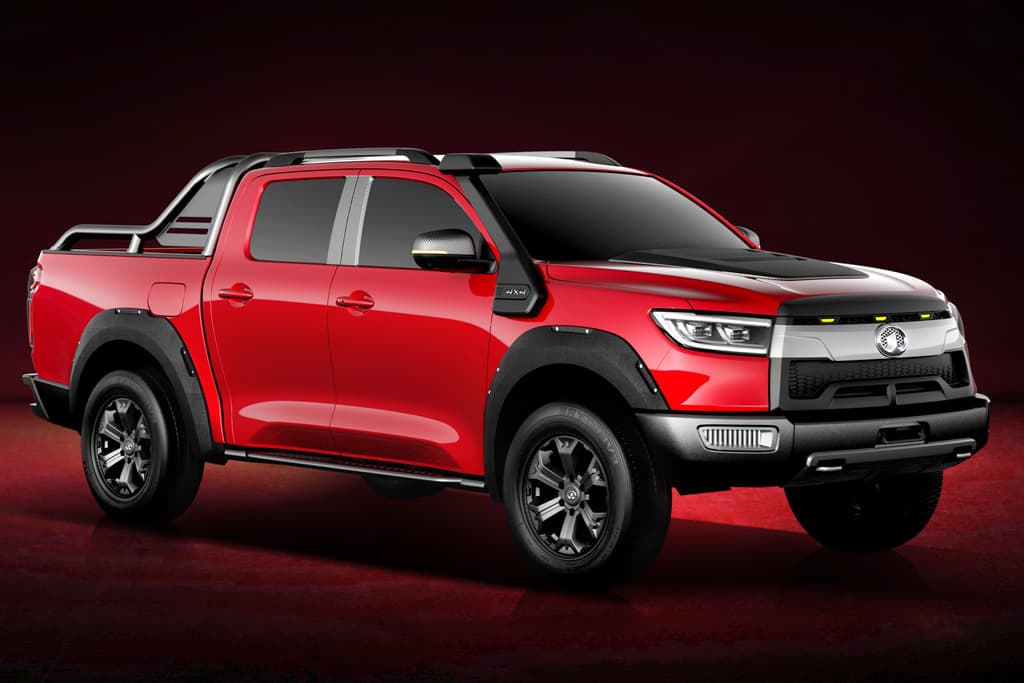

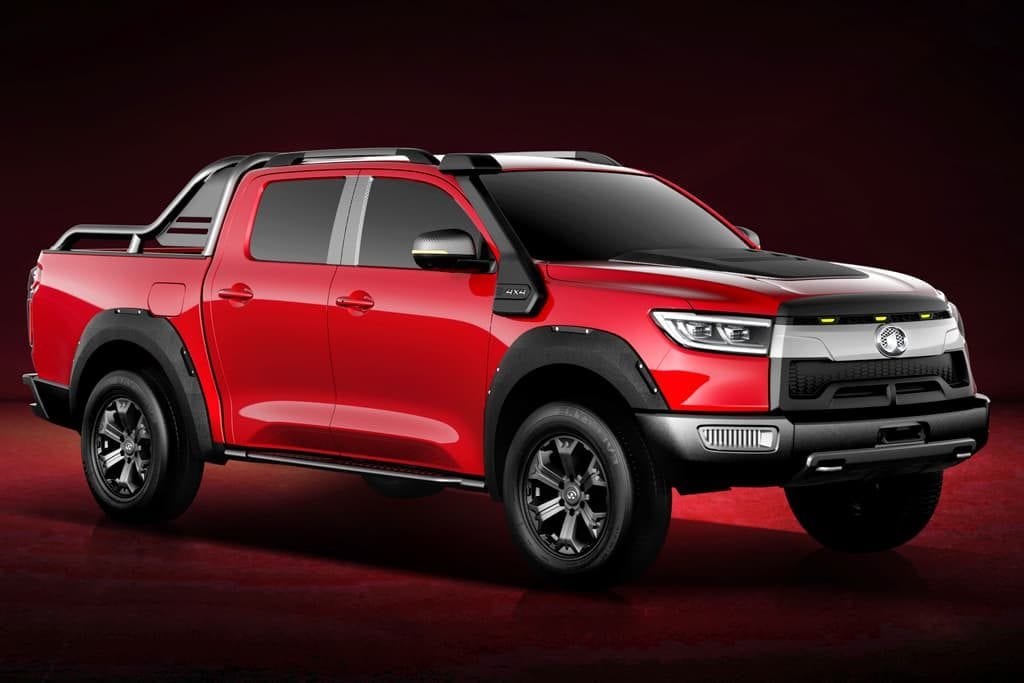


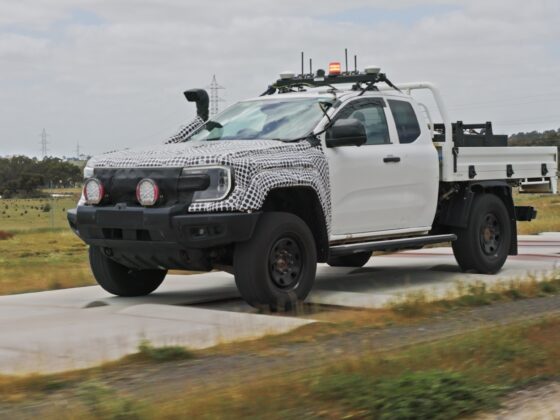
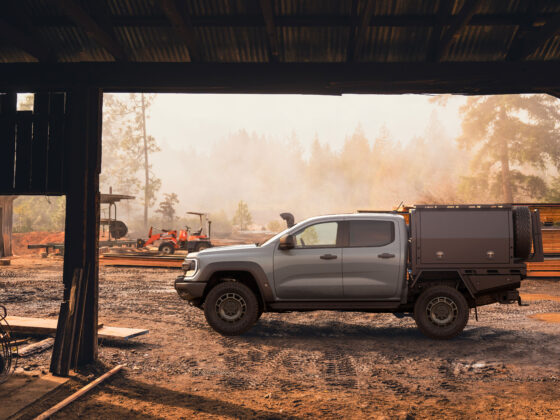

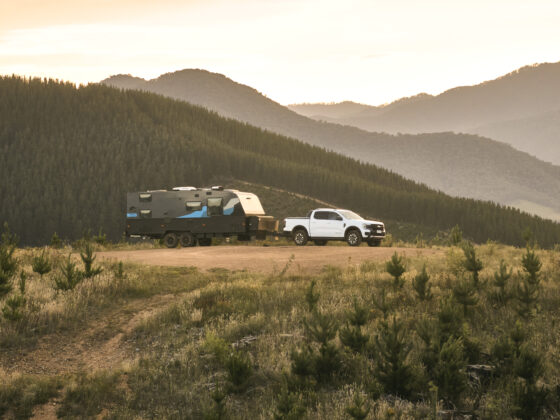
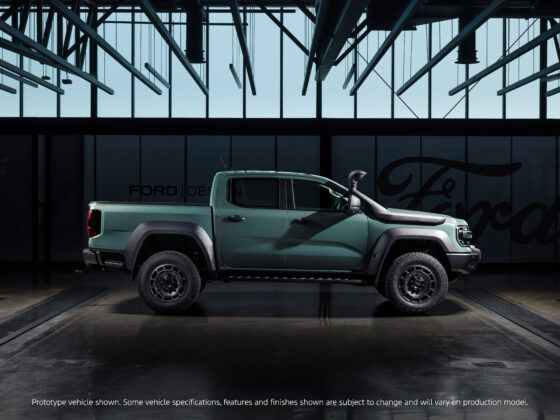

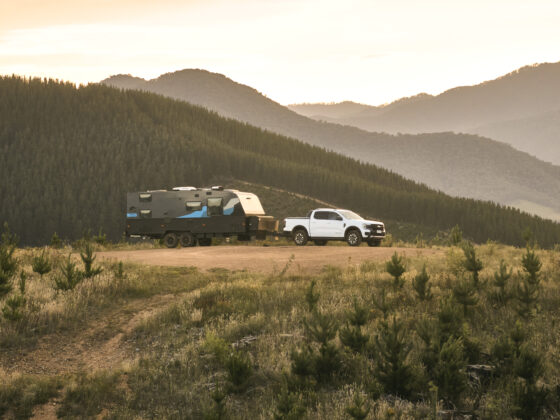

9 comments
I’d love to have this ute and 500 km range is fine. As a builder in regional Victoria I’d ask my electrician to install a large amp charging outlet on all my jobs so the ute would be charging more time than driving, easy! thanks
500 km range if good for me as a coastal beef producer. Charge at home while I sleep. Fast chargers available on Bruce hwy, more destination chargers showing up all the time.
I’ll buy it, I’ve been waiting for an electric Ute. No good waiting for Toyota, they are in denial over electric vehicles.
I like the electric idea aswell Brett, 500km range would suit me aswell. I know it isn’t the electric one pictured here, but that dual cab ute looks great aswell. A lot tougher then there previous models. If look are anything to go on, Great Wall are fairly serious in producing a good vehicle now. I have always wondered if a hydrogen electric hybrid vehicle would ever be produced in the future. Set up so the vehicle can still be charged at home or a charging station, and have a hydrogen engine running when needed to recharge the batteries and drive the vehicle when needed.
If all vehicles go electric where is the power comming from green Power certainly wont provide it unless we cover the whole country in solar panels and wind turbines. What are we going to do with the junk when they reach there use by date i believe vehicles will have somewhere around a 10 year life solar and turbines about 25 years . American already having problems with the desposal of old wind turbines. Yes electric vehicles will be good but there will be big problems with power supply and desposal
Their is no mention of electric vehicles able to tow box trailers, caravans and other types of trailers. I think they are a good idea to save the environment but there is along way to go . No mention of built in solar panels into the vehicles bodies to help with charging . We all know how hot they get sitting in the sun when you can not find shade.
First off Brett, thanks for the work you do, human evolution was all thanks to meat. Now for your comment, I don’t believe Toyota are in denial? Didn’t it all start off here and well before any other manufacturer with the Prius? Toyota is far from being in denial and have there reasons for not going fully electric until there is more infastructure in place to support the demand for the amount of vehicles they sell versus Tesla. Toyota have hybrid and many of there models including Lexus and personally it was amazing paying $20 a week to commute in a Prius versus the $90 my SS Commodore would cost. When battery technology can support a few thousand K’s then I am sure we will see all electric from most manufacturers. Now is the time to buy shares in the electricty sector.
Comparing the running cost of a Prius with that of a Commodore SS is hardly relevant – the two vehicles are only similar in that they both have four wheels. A while back, I had a Toyota Camry hybrid work vehicle. My wife has a standard petrol Camry the same model. Cost to purchase – the hybrid was significantly more expensive. Running cost – they were about the same. Anyone thinking that owning and operating a Toyota hybrid vehicle is cheaper than owning and operating the same vehicle with conventional power source really is living in dreamland I’m afraid. In specific applications, such as taxis, the hybrid may be marginally more cost effective – but I’m not even convinced of that. Many will say that the long term “green” footprint of the hybrid is smaller than that of its conventionally powered counterpart – I am not convinced of that either.
It’s called RECYCLE. Generators are chock full of COPPER components, it’s easier and cheaper to recycle these, than it is to dig them out of the ground and spend uddles of money on processing the ore.
Batteries also fall into a similar category, ideal for recycling. We need to get away from continually digging massive holes in the ground to source these materials when they already available and just need recycling.
I look forward to seeing future articles on this subject. Great Wall May end up making all the other manufacturers obsolete.